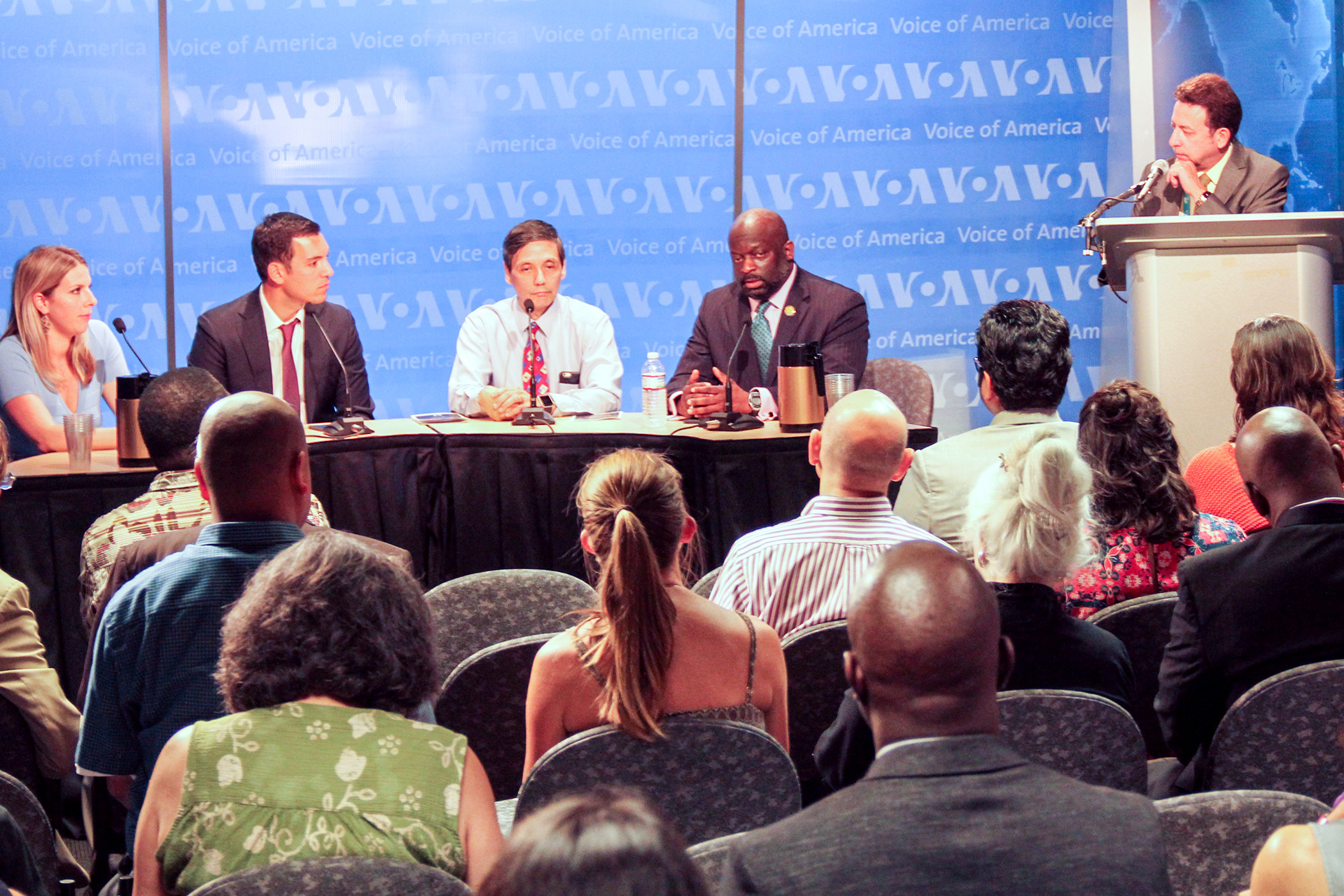VOA hosts roundtable discussion on the critical issue of global press freedom

The increase in the number of authoritarian governments around the globe constitutes the most serious threat to global press freedom, according to Reporters Sans Frontieres (RSF) Advocacy and Communications Director, Margaux Ewen, who took part in VOA’s “Global Press Freedom” roundtable on Thursday, July 20.
Three of Voice of America’s frontline journalists joined representatives of media watchdog groups and professional journalism organizations in a discussion about challenges and threats to press freedom worldwide.
The discussion, moderated by VOA White House Bureau Chief Steve Herman, highlighted the experiences of VOA’s own journalists who have operated in restrictive and repressive media environments. “I was one of the most undesirable people because I worked for both the American media and Russian independent media,” said investigative reporter Fatima Tlis of the VOA Extremism Watch Desk. Prior to VOA, Tlis worked in the Caucasus region of the Russian Federation, where she was marginalized, detained and tortured for drawing attention to issues that the Kremlin didn’t want publicized.
“They arrested me, and they said I was working with the CIA and sentenced me to 10 years in jail,” said Arash Sigarchi, Internet Managing Editor of VOA’s Persian Service. While working in Iran, Sigarchi was harassed, arrested and imprisoned for not following the regime’s line in his blog.
The media was the “first casualty because they did not want the truth to be told,” said Ray Choto, senior editor at VOA’s Zimbabwe Service. Choto detailed how he was handed over to the military, detained and tortured for several days while reporting in Zimbabwe.
The discussion turned also to the United States as several of the advocates argued press freedom, while enshrined in the U.S. Constitution, has been degraded.
“We’re seeing a lot of similarities between the way in which this administration is talking about the press and the way in which regimes around the world, which are repressive to media, are speaking about the press,” noted Michael De Dora, Washington Advocacy Manager for the Committee to Protect Journalists.
“When you restrict access to reporters, when you trash the institution that is enshrined in the Constitution, that undermines faith in the enabling documents of this country,” said Jeff Ballou, News Editor of Al Jazeera Media Network and 110th president of the National Press Club. RSF’s Ewen pointed to the Obama administration, as well, which pursued leak investigations against journalists.
In covering the Trump administration, U.S. reporters frequently cross the boundary from journalism to advocacy, said Don Irvine, chairman of Accuracy in Media and a leading conservative voice on media bias. Irvine said the explosion of social media use constitutes one of the biggest threats to press freedom domestically and internationally.
This event was the first in a series of “Critical Issue Roundtable” discussions the Voice of America plans to host in the coming months on important topics that its journalists are covering globally.
About VOA
Voice of America reaches a global weekly audience of more than 354 million people in 49 languages. VOA programs are delivered on satellite, cable, shortwave, FM, medium wave, streaming audio and video and more than 2,350 media outlets worldwide. It is funded by the U.S. Congress through USAGM.
